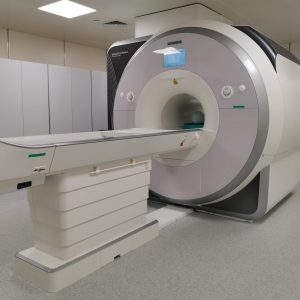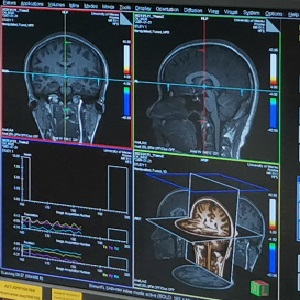Master of Science in Cognitive Neuroscience
The Master of Science in Cognitive Neuroscience is a 2-year postgraduate programme that aims to train students with innovative approaches for inspecting brain functions in terms of neurolinguistics, neuroeducation, neuroeconomics, neuroimaging, brain-inspired intelligence, etc. and promote translating discoveries into solutions for health and society. It works to train cognitive neuroscientists and professionals to deeply understand and integrate interdisciplinary research findings, perspectives, and tools for the study of mind, brain and behavior.
The MSc programme is intended for students who wish to study cognitive processes based on their underlying neural systems. There are two broad knowledge that can be taken – one is behavioral experiments and the other is computational modeling. In both, the goal is to understand the nature of cognition from a neural perspective.
| Compulsory Courses | Credits | |
| CCBS7001 | Principles of Neuroscience 神經科學原理 | 3 |
| CCBS7002 | Cognitive Neuroscience 認知神經科學 | 3 |
| CCBS7003 | Brain Stimulation and Neuroimaging Techniques 腦刺激和神經影像技術 | 3 |
|
Required Electives – Group 1 (Choose TWO courses from Group 1 to obtain 6 credits) |
||
| CCBS7004 | Magnetic Resonance Imaging 磁共振成像 | 3 |
| CCBS7005 | Computational Cognitive Neuroscience 計算認知神經科學 | 3 |
| CMED7018 | Bio-Statistics 生物統計學 | 3 |
|
Required Electives – Group 2 (Choose THREE courses from Group 2 to obtain 9 credits) |
||
| EDUC7402 | Psychology of Learning 學習心理學 | 3 |
| EDUC7503 | Advanced Exercise Physiology 高級運動生理學 | 3 |
| EDUC7403 | Advanced Developmental Psychology 高級發展心理學 | 3 |
| AHGC7400 | Clinical Linguistics 臨床語言學 | 3 |
| ENGL7004 | Psycholinguistics 語言心理學 | 3 |
| AHGC7302 | Second Language Acquisition 第二語言習得 | 3 |
| ENGL7005 | Sociolinguistics 社會語言學 | 3 |
| ECEN7021 | Biomedical Transducers and Instruments 生物醫藥傳感器及儀器 | 3 |
| CISC7026 | Introduction to Deep Learning 深度學習導論 (with pre-requisite, refer to remarks**) | 3 |
| CISC7013 | Principles of Artificial Intelligence 人工智能原理 | 3 |
| CISC7202 | Practical Machine Learning 實用機器學習 (with pre-requisite, refer to remarks**) | 3 |
| PSYC7708 | Behavioral Addiction 行為成癮 | 3 |
| IRTM7036 | Cross Cultural Gambling Psychology 跨文化博彩心理學 | 3 |
| CCBS7006 | Neuroeconomics 神經經濟學 | 3 |
|
Project Report 項目報告 |
||
| CCBS7098 | Project Report | 6 |
| Total Credits: | 30 | |
Remarks: Pre-requisite for CISC7026 and CISC7202 – For student of MSc Cognitive Neuroscience to take this course, basic knowledge is required in: 1) Math, in particular, linear algebra, and 2) Programming skills with python
- Application Period: Refer to designated page of UM Graduate School (Apply online)
- Applicant must possess a Bachelor’s degree or academic background recognized as equivalent by the University of Macau. Priority will be given to applicants with relevant background, including but not limited to behavioral science, biological science, psychology, cognitive science, educational psychology, neuroeconomics, computer science, biomedical engineering/sciences, neuroscience, and linguistics.
- Please visit Graduate School for information about admission and application procedure.
Cognitive Neuroscience is an interdisciplinary study that penetrates different industries, for example, psychology, education, linguistics, and artificial intelligence.
Graduates can seek for careers according to their competencies and interests developed in cognitive neuroscience within their own professional background. For instance, graduate with linguistics or education background could seek for a career of translation and language processing, child development, and personality shaping in primary and secondary school. Graduate with biomedical science and computing background can seek for a career in brain-like intelligence and neuroimaging, while those coming from psychology and social science background can pursue a career in counselling, aging care and community work.
For academic research, this programme can equip graduates with research skills in the field of cognitive neuroscience, which serves as a basis for PhD study, offering opportunities in academic and research setting.
Upon completion of this programme, students should be able to:
- Possess a thorough understanding of the intellectual issues that drive this rapidly growing field, as well as the expertise in the major methods associated with higher brain function. These functions include, but are not limited to, perception, attention, memory, language, emotion, motor control, executive functions, consciousness, and the evolution of mental processes.
- Design and evaluate neuroimaging experiments and perform data analysis that contribute to the understanding of the brain mechanisms underpinning various perspectives of cognition and behavior such as memory, attention, object recognition, neurodegeneration, and brain trauma.
- Identify and possess the knowledge of using research equipment in CCBS including MRI scanner, EEG, functional near-infrared spectroscopy, transcranial direct current stimulation, transcranial magnetic stimulation, and eye-tracking, and other extensive facilities for psychophysical studies in humans.
- Recognize discoveries within the fields of cognitive psychology and neuroscience.
- Identify and relate the theoretical backgrounds of cognitive psychology and neuroscience and their relationship and relevance to other fields or subfields (e.g. linguistics, education, economics and neuroimaging).




